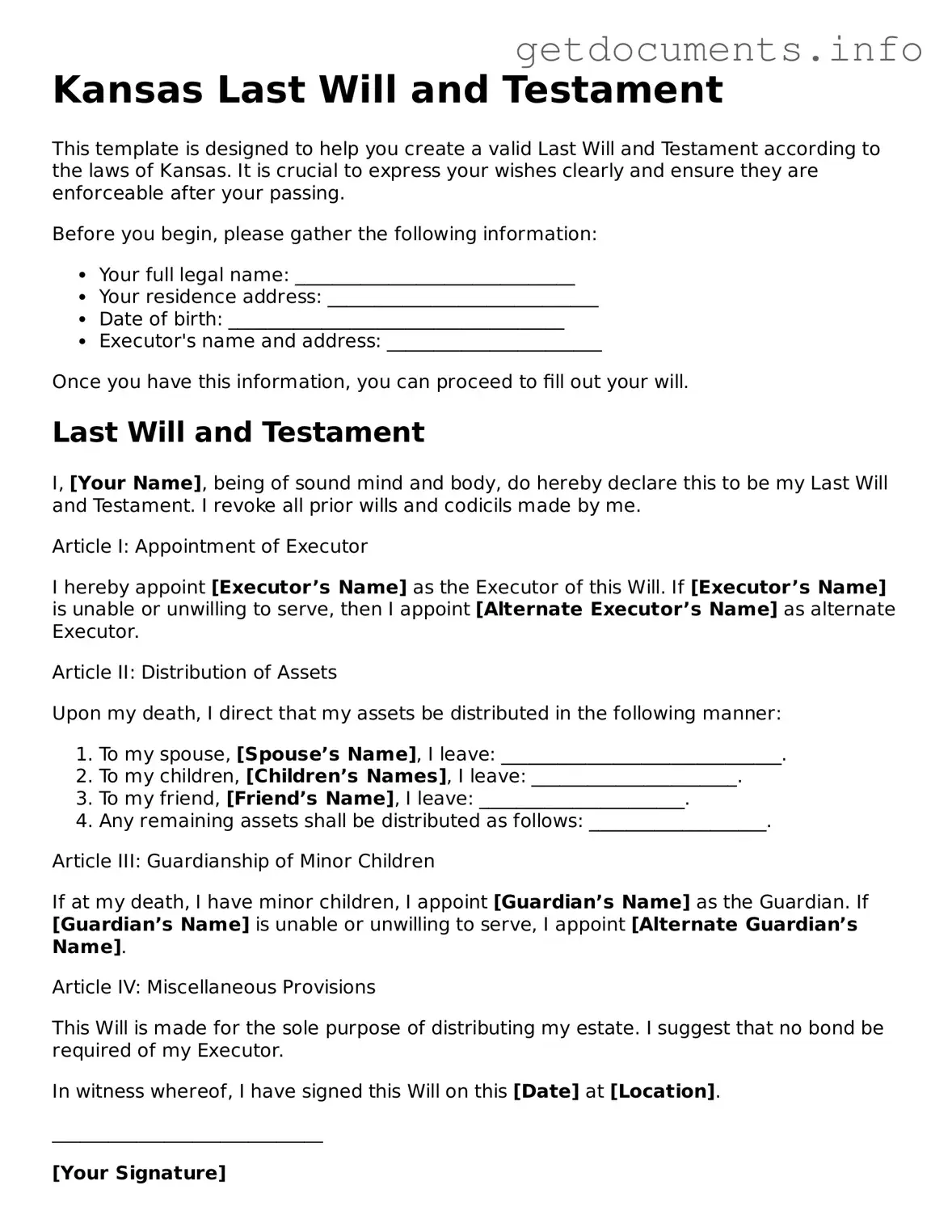Free Last Will and Testament Template for Kansas
A Kansas Last Will and Testament form is a legal document that outlines how a person's assets and responsibilities should be managed after their death. This form ensures that your wishes are respected and that your loved ones are taken care of according to your preferences. To get started on securing your legacy, fill out the form by clicking the button below.
Access Last Will and Testament Editor

Free Last Will and Testament Template for Kansas
Access Last Will and Testament Editor
Got places to be? Complete the form fast
Fill out Last Will and Testament online and avoid printing or scanning.
Access Last Will and Testament Editor
or
⇩ PDF File
